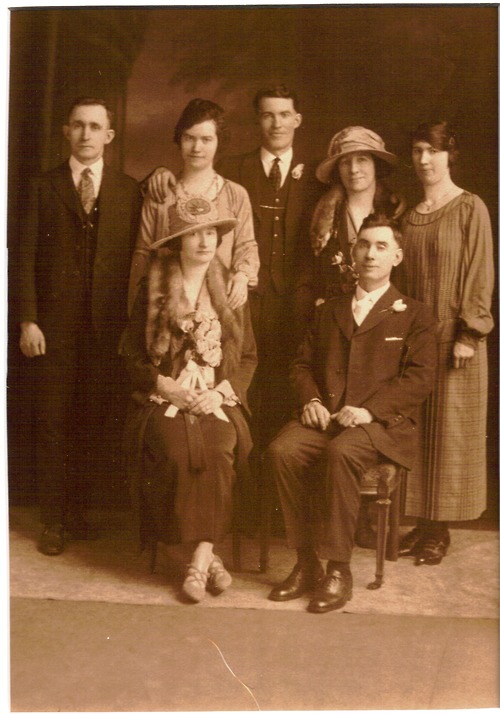HUSBAND…
William Diggin met Nora Ware in Pittsburgh sometime during Ireland’s struggle for independence and civil war. She had grown up on a Kerry farm near Ballylongford, just a few miles from where Willie was raised in Lahardane. The blue-eyed girl emigrated in September 1912, at age 21.
By coincidence, Nora crossed on the Baltic eight months before Willie boarded the same ship.
Like many young, unmarried Irish woman of the period, Nora worked as a household maid, or domestic. The 1920 census shows her living with the family of William Davidson, the Pittsburgh schools’ superintendent, in the city’s Homewood district.
The census also shows Nora’s older brother, John, a streetcar man, and their younger sister, Bridget, all lived within a few blocks of each other, as did Willie’s sister, Annie. The other two women also worked as domestics, and all four of these Catholic immigrants attended the nearby Holy Rosary Church, then the city’s largest parish.
There is no indication Willie and Nora had known each other in Ireland, but the fact both were from north Kerry must have warmed their courtship. Their introduction likely came through one of their siblings or at one of the Irish social events of the day, such as the annual summer picnic at Kennywood Park sponsored by the Ancient Order of Hibernians.
Willie and Nora each had been in Pittsburgh a little more than 10 years by the time they were married on March 4, 1924. He was 30. She was 33.

Nora and Willie, seated. Standing, left to right, John Ware, Mary Diggin, Michael Diggin, Bridget Ware and Annie Diggin.
By church custom the nuptial Mass would have occurred that Tuesday morning. Any luncheon reception afterward was likely a small, humble gathering. By now Willie’s brother Mike and sister Mary had immigrated to Pittsburgh. If these Kerry immigrants toasted the occasion, they did so discretely, Prohibition being the law of the land since 1920. Another law at the time prevented Nora from automatically obtaining American citizenship through her marriage to Willie.
There was reason for optimism as the couple began their married life. Polk’s 1924 city directory described Pittsburgh as “in the dawn of a new era” and “laying the foundations for a grander future than it has visualized in the past.” The annual publication said millions of dollars were being spent on new roads, bridges and schools. “All these things mean a greater Pittsburgh, a better and more desirable place to live than it ever has been in the past,” the directory said.
The newlyweds settled into an apartment close to where Willie could walk to the streetcar barn. Nora was soon pregnant. The couple began looking for a house to buy.
Tomorrow: HOUSE AND FAMILY